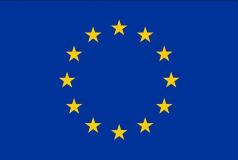Non-CO2 Forcers and their Climate, Weather, Health and Air Quality Impacts (FOCI)
Situación actual
The overall causes and impacts of global warming related to the increase of greenhouse gases, especially CO2, in the atmosphere are well understood with a high level of confidence, but there are large knowledge gaps concerning the impact of other species which contribute to radiative forcing, such as short-lived greenhouse gases and aerosols and their precursors. These gaps lead to high uncertainties concerning their subsequent effects on atmospheric chemistry and climate, through direct changes in emissions as well as through various feedback mechanisms (e.g., permafrost thawing). Additionally, albedo changes connected to land use and land-cover can play a role, depending on adaptation or mitigation included in different scenarios.
Thus, the main goal of the four-year EC Horizon Europe project FOCI (accepted within the call HORIZON-CL5-2021-D1-01-0 Improved understanding of greenhouse gas fluxes and radiative forcers, including carbon dioxide removal technologies), is to assess the impact of key radiative forcers, where and how they arise, the processes of their impact on the climate system, to find and test an efficient implementation of these processes into global Earth System Models and into Regional Climate Models, and finally to use the tools developed to investigate mitigation and/or adaptation policies incorporated in selected scenarios of future development targeted at Europe and other regions of the world.
WMO is one of 17 partners in the project and leads one of nine work packages: communicating and disseminating project results among the scientific community and promote their uptake in international policy and operational services, including integrated health, urban, and energy services.
Alcance
The FOCI project has eight specific objectives. WMO leads Work Package 8: Global dissemination, communication and engagement with stakeholders. The main objective of this work package is to disseminate the results of the project among the scientific community and promoting their uptake in international policy and operational services, including integrated health, urban, and energy services.
Objetivos
WMO is responsible for and will work with other FOCI partners to deliver the following under Work Package 8:
- An operational project website and project identity design
- The communication, dissemination and exploitation plan
- Disseminate scientific outputs of the project
- Produce project newsletters and “post” on relevant social media
- Define the user requirements for health applications and the energy sector
- Deliver trainings for early career researchers and stakeholders
- The data management plan
- Produce policy briefs on FOCI results
- Provide recommendations for the improvements of Earth System Models and operational Numerical Weather Prediction
Estructura
FOCI aims to assess the origins and formation of key radiative forcers and improve the understanding of their impacts on climate by refining their processes in models at various scales. FOCI is targeting key gaps and uncertainties associated with non-CO2 forcers by testing efficient implementation of their complex interactions and processes in the atmosphere in Earth System Models and Regional Climate Models and by building improved emissions inventories. New regionally-tuned scenarios based on these improvements will be developed. Mutual interactions between the results and climate services producers and other end-users will provide feedback for the specific scenarios preparation and potential application to support the decision-making, including climate policy.
- Región:
- Region VI: Europe


- Climate Resilience and Adaptation
- WMO Integrated Global Observing System
- Observations



